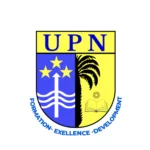Is your current study method rereading a textbook in the hopes that something will stick? If so, are you stressed out because you can’t memorize such a large amount of information in such a short period of time?
As a graduate student, you must learn effective time management and study techniques to help you retain the most information. Cramming the night before no longer suffices in graduate school.
So, how to study effectively? Start the new year with a new strategy with 9 most effective study methods listed below:
- Create a dedicated study area
- Plan your time
- Don;t hesitate to ask questions
- Keep track of your progress and make notes
- Study before going to bed
- Use the Pomodoro technique
- Apply the Feynman study technique
- ‘Eat that frog’ study method
- Mind mapping
- Create a Dedicated Study Area
Making a dedicated study space for yourself is one of the most important study tips. When you have a designated study location, you are less likely to procrastinate.
It all comes down to having a space where you can enter the study mindset whenever you go there.
For example, sitting on the couch in your living room puts you in the mindset that it’s time to watch TV. Alternatively, lying down in bed puts you in the mood to sleep. Your study environment should get you in the mood to learn.
Your study space needs to be:
- Quiet: Make sure it is free of distractions and free of noise.
- Well-lit: Studying in a bright and well-lit place is ideal for staying focused.
- Comfortable: Choosing a comfy study area will help you focus on your work without being bothered.
- Plan Your Time
Balancing out work and leisure is the most difficult part of the studying process for many students. Working for too long can cause fatigue, burnout, and a general dislike of the study process.
On the other hand, taking excessively long breaks can result in a loss of concentration and a constant disruption from the working mindset.
The ability to organize your time so that you can distinguish between work, study, recreation, and relaxation is the most important factor in improving productivity and performance.
- Don’t Hesitate to Ask Questions
As a student, your primary concern is to fully comprehend what is being taught in class. Your lecturers are there to share their knowledge with you and ensure that you are on the right track.
This means they are also responsible for answering any questions you may have about the course. However, this implies that you should never be afraid to ask questions.
Having questions demonstrates to lecturers that you are willing to put forth the effort to learn what you are unsure about. Furthermore, having your questions answered is clearly preferable to keeping them to yourself and remaining uncertain about something taught in the lesson. If you keep your questions to yourself, they will pile up, which can lead to serious problems in the long run.

- Keep Track of Your Progress And Make Notes
Time management is not the only type of organization that can result in better academic performance. Physical organization is also essential. Finding an article you saved in the first few weeks of your course can be much easier if you take the time to organize your files and folders properly from the start.
Try to organize your folders for each course on a weekly basis, and title the files in a way that allows you to remember the contents without having to open and read them first.
To keep track of your progress during in-class learning, make structured, detailed notes and labels on the work you are doing. Taking notes is also a form of revision, and it can lead to the discovery of something you may not fully comprehend, which brings us back to point number three.
Note-taking and appropriate labeling is a useful study technique in and of itself, and it can be extremely beneficial if you struggle to remember a lot of information over a long period of time.
Making notes allows you to go over the material again and create a small mental summary of what you have just studied.
- Study Before Going to Bed
Sleep is essential for proper brain function, memory formation, and learning. Reviewing flashcards or taking notes before going to bed can help improve recall.
The brain organizes your memories while you sleep. Rather than pulling an all-nighter, study for a few hours before bed and then review the material in the morning.
- Use The Pomodoro Technique
This time management technique is based on the idea that if we divide time and work on tasks in short bursts with regular breaks, we can stay focused and productive.
Make sure you have a timer handy because the Pomodoro Technique divides study time into 25-minute intervals with 5-minute breaks in between.
It’s an excellent way to maintain focus in short bursts while giving your brain and body regular breaks to avoid burnout.
It also aids in the formation of long-term study habits because you do not have to devote large amounts of time to reviewing all of your learning materials at once.

- Apply The Feynman Study Technique
This study method involves teaching information to someone else in order to help you learn and remember it.
It is based on the idea that when we teach something, we are forced to deeply understand and remember it.
To apply the Feynman Technique, first devise a simple way to explain the topic or central concept under consideration. Later, teach it to someone else, and ask them to correct you in case you make a mistake.
Keep on doing so until you can explain the concept without making any mistakes in your own words.
The Feynman Technique is a great method of studying because it forces you to study the topic until you fully understand it.
- ‘Eat That Frog’ Study Method
This technique is named after Mark Twain’s famous quote: “Eat a live frog first thing in the morning, and nothing worse will happen to you for the rest of the day.” It focuses on you completing your most burdensome task first and getting it out of the way.
The procedure is as follows:
- Set clear goals and write them down.
- Give them a deadline.
- Write a list of things you need to do to achieve the goals you’ve set for yourself.
- Sort the list according to priority. The most difficult tasks are prioritized at the top of the list. This is your ‘frogs.’
- Begin working on them. If you have several ‘frogs’ on your plate, start with the least appealing one.
- Repeat every day. This will help you stay on track of reaching your goal.
- Mind Mapping
Try mind mapping, a technique that allows you to visually organize information in a diagram, if you’re a visual learner. You begin by writing a word in the center of a blank page. Then you write major ideas and keywords that are directly related to the central concept. Other related ideas will continue to emerge.
A mind map’s structure is related to how our brains store and retrieve information. Reading comprehension can be improved by mind mapping your notes rather than simply writing them down.
You also get a bird’s-eye view of the big picture by communicating the hierarchy and relationships between concepts and ideas.

Wrapping up
Nobody wants to spend more time studying than is necessary. Learning effective study techniques will help you be fully prepared for your exams and will help you overcome any test anxiety.
Hopefully, the best study methods outlined above will help you avoid cramming the night before and make your study time more productive.
And if you’re looking to advance your education online, you’re in the right place: Our accredited 100% online degree programmes are made with the intention to provide you with the most relevant industry knowledge while our faculty is devoted to helping you maximize your potential.
If you want to determine if we’d be a good fit for your career plans, don’t hesitate to contact us or download the UNZA prospectus to learn more about the programmes that we offer.


